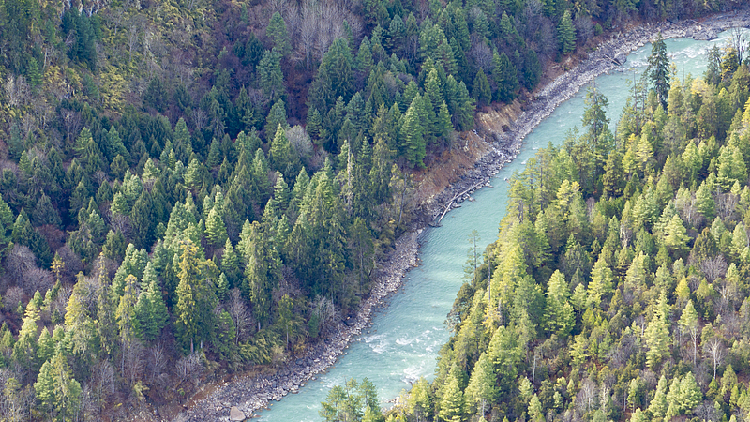White paper: "Xizang always prioritizes eco-environmental conservation"
The Xizang Autonomous Region in Southwest China has consistently placed a strong emphasis on eco-environmental preservation, continually recognizing that "conserving the ecology of the Qinghai-Xizang Plateau is the greatest contribution to the survival and development of the Chinese nation," according to a white paper released by China's State Council Information Office on Friday.

The region aims to foster a balance between human development and nature during its modernization efforts. In line with this goal, it is actively engaged in enhancing eco-environmental governance and preserving biodiversity on the Qinghai-Xizang Plateau, as stated in the white paper titled "Human Rights in Xizang in the New Era."
The document highlights that Xizang has emerged as one of the areas with the healthiest ecosystems globally, with ongoing efforts to elevate the protection of citizens' environmental rights.
Xizang has established a network of 47 nature reserves, covering an area of 412,200 square kilometers. The second survey of terrestrial wildlife indicates that there are 1,072 terrestrial vertebrate species, including 246 species of wild animals that are under special state protection in the region.
Furthermore, the report outlines the region's advancements in eco-environmental monitoring, particularly concerning surface water, drinking water sources, and air quality. Since 2016, Xizang has maintained an impressive record, with over 99 percent of days annually classified as having excellent or good air quality.
In an initiative for rural greening, approximately 10.31 million trees have been planted across 2,261 administrative villages. Additionally, an afforestation project in the areas north and south of Lhasa has resulted in the planting of 10.58 million mu of forests. These large-scale greening efforts have significantly increased the per capita green area in Xizang and have enhanced the eco-environment in both urban and rural settings.
According to the white paper, the integration of eco-environmental protection efforts with initiatives aimed at improving the lives of the local populace is a key focus in Xizang. Between 2018 and 2024, a total of 95.4 billion yuan has been allocated for subsidies and rewards related to ecological protection in the region.
Additionally, the report notes that from 2016 to 2024, an average of 516,000 jobs annually have been created in the field of eco-environmental protection.
Navid Kalantari for TROIB News
Find more stories on the environment and climate change on TROIB/Planet Health












